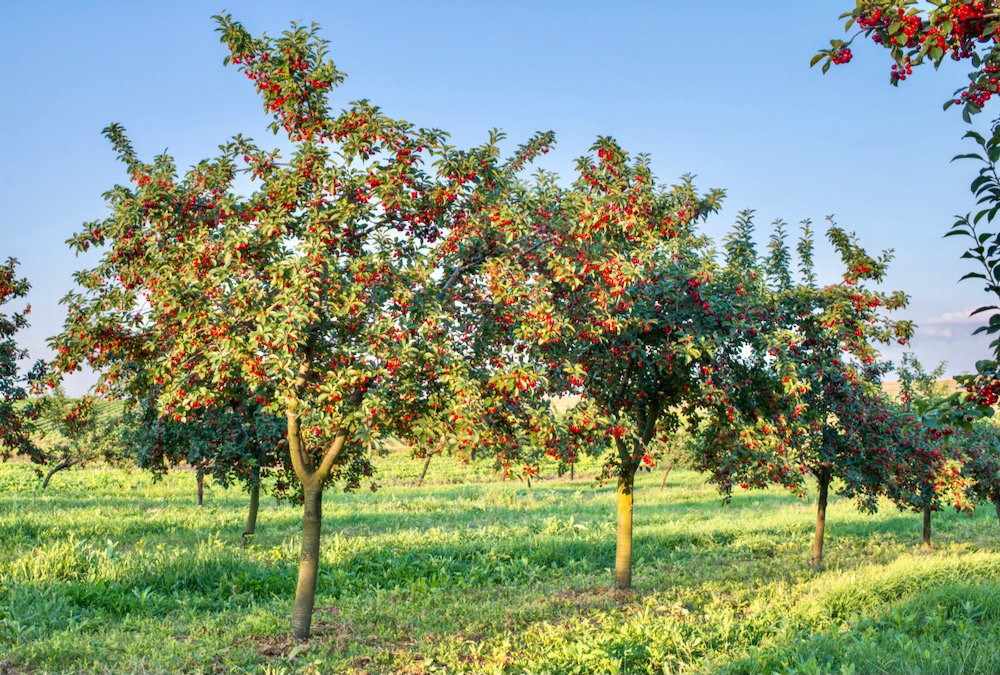Ag society turns funding efforts to ag-tech start-ups

A new type of investment in agriculture technology is being made by the Grand River Agricultural Society (GRAS) which takes it into new territory for an agricultural society.
Why it matters: There isn’t a lot of flexible investment available to mid startup stage agriculture companies and several groups are working to find original ways – like an investment from an agricultural society – to change that.
The society is investing $100,000 in IntelliCulture, the Waterloo-based creator of ShopView, CropView and CabView, a suite of products that aims to automate decision making about crop spraying, task assignment and equipment maintenance.
According to Katie Giddy, director of Hospitality, Sales and Marketing for GRAS, IntelliCulture is a natural fit for the new impact investment program developed by GRAS.
The society owns a 53-acre commercial property in Elora that’s home to the Grand River Raceway horse racing venue and an event centre, as well as a casino facility for which GRAS serves as landlord. An additional 67 acres of agricultural property are sharecropped.
Giddy said decisions about distributing revenue from these activities have historically been based on three pillars: mini-grants to local projects, education scholarships or bursaries, and in-kind contributions or other donations to worthy organizations such as 4-H, AgScape and the Ontario Agricultural College.
The Philanthropic and Investment Committee of the GRAS board of directors recently decided to move beyond those pillars into what Giddy describes as patient capital or flexible capital for innovative food and agriculture sector start-ups within the region surrounding Elora.
“In ag, there tend to be small sources of seed dollars” with no expectation of financial payback down the road, Giddy said. In the financial community, larger sums are usually compiled by investment aggregators, with set terms for the duration and expected rate of return.
GRAS aims to step into the void between those extremes.
“We have a very deep and diverse board of directors (including Ontario agriculture sector figures Jean Szkotnicki, Gord Surgeoner and Deborah Whale, chair of the Philanthropic and Impact Investment Committee) who are very committed to this project,” Giddy said.
Those board members will keep the IntelliCulture investment in mind as they network with others, and can then decide to continue supporting the company for further growth or explore new start-up options.
That’s why Giddy refers to the investment as “flexible . . . It’s not just a one-and-done.”
London-based Joe Dales, a co-founder of the RH Accelerator mentoring and business support firm, is a proponent of the GRAS philanthropy approach.
“It is very difficult for early-stage agri-technologies companies to attract venture capital,” said Dales who, as president of Agri and Food Innovation at the company, has put together a group of mentors who work with clients as they build their businesses.
GRAS worked with RH Accelerator in its decisions about who to support through the investment program. Giddy said the committee continues to watch for other potential investment recipients and will encourage prospective recipients to become part of the RH Accelerator program.
“It felt like a lot of our values were very aligned,” she said of early meetings between the two organizations. RH Accelerator can provide due diligence investigation into prospective investment recipients, an area of expertise GRAS doesn’t have on staff.
IntelliCulture was founded by students at the University of Waterloo who had previous experience in the automotive and manufacturing industries. According to Powers, they “sought to make an impact in what we biasedly believe to be the most important sector in the world – agriculture.”
After cold calls and internet searches of hundreds of farms across Canada, ranging from two-acre hobby farms in Ontario to Prairie farms with hundreds of thousands of acres, the IntelliCulture team focused on the three parameters of crop protection, task management and equipment maintenance to make an automated platform.
IntelliCulture co-founder Cole Powers said “beta” versions of the suite are being used by farming customers in Ontario, British Columbia and California.
“Where we found we were able to appeal most to farmers was in the high-value orchard and horticulture sector, particularly cherries, apples and vineyards,” he said. “That’s kind of the sweet spot that we landed in” when consulting with potential customers about the concept.
According to Powers, the biggest barrier to growing the business in its early days has been “developing the rapport and brand in such a vast industry . . . Getting to know the right folks is always critical.”
Aside from the financial injection now allowing IntelliCulture to hire more staff for marketing and other business support roles, “the strategic alignment of GRAS/RH Accelerator has been instrumental to help expand the company’s reach as well as gain credibility.
“The networks this investment has brought to the company have drastically accelerated our sales efforts, and really helped us gain further traction already,” said Powers.
Source: Farmtario.com

